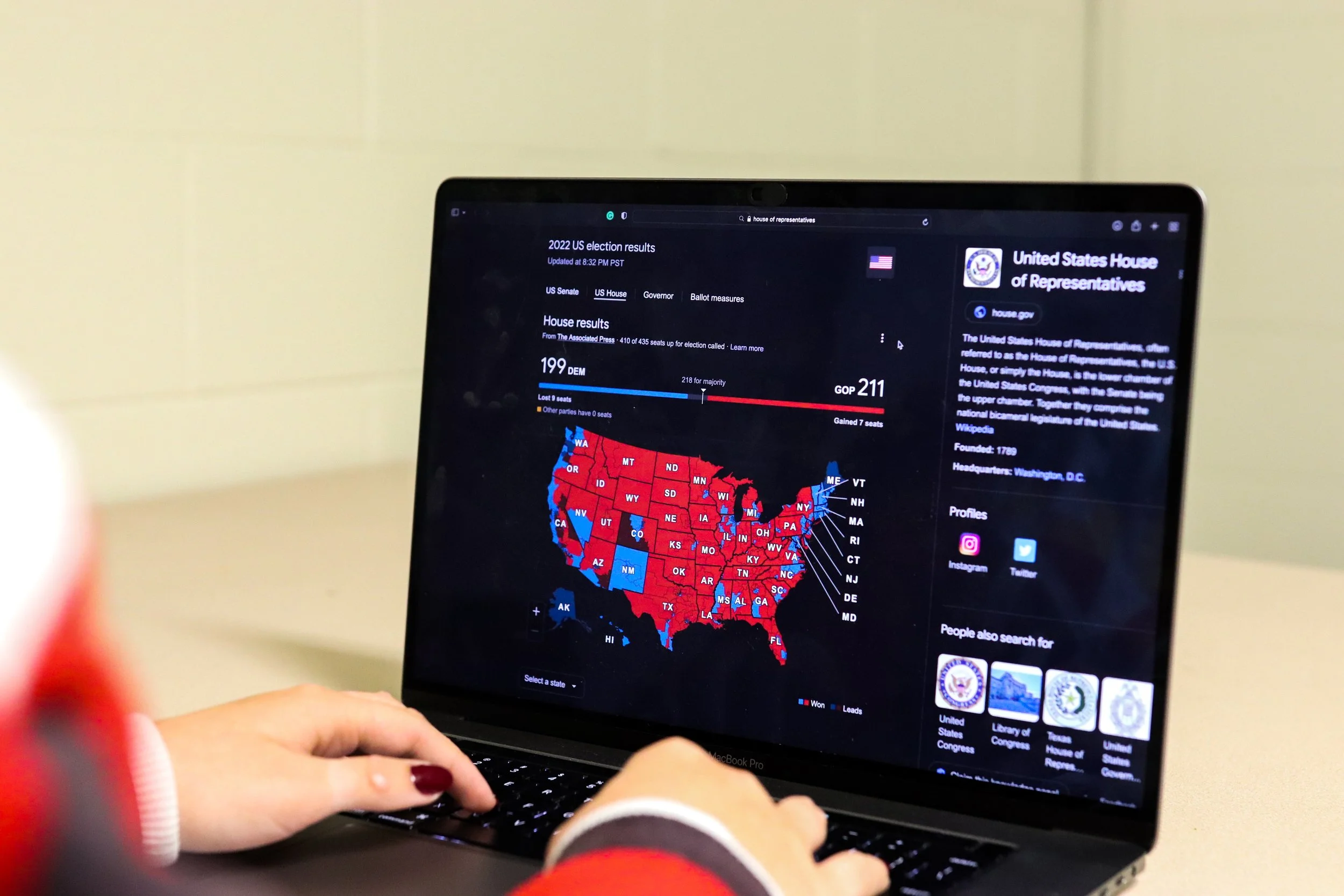Election results: 2022 state offices, ballot propositions
Gavin Newsom won re-election as California’s governor, and three of the seven state propositions on the ballot were approved by voters. Photo by EMILY PARIS, photo editor
California voters have decided to re-elect Gavin Newsom for governor, along with a slew of new and returning faces. In addition, voters also approved three of the seven propositions listed on the ballot. Voting percentages were obtained from the California Secretary of State’s General Election Nov. 8 results webpage.
Additionally, the Republican Party assumed control of the U.S. House of Representatives, which now consists of 218 Republicans and 212 Democrats as of Nov. 18. Kevin McCarthy, the current minority leader for the House of Representatives, won the Republican nomination for Speaker of the House, and he will replace Nancy Pelosi, who currently holds the position.
The U.S. Senate, meanwhile, remains under the control of the Democratic Party at 50 Democrats and 49 Republicans. Sen. Rick Scott (FL-13) is slated to challenge current Sen. Minority Leader Mitch McConnell for the position.
“The status quo is broken, and big change is needed,” Scott wrote in a Nov. 15 tweet to his followers. “It’s time for new leadership in the Senate that unites Republicans to advance a bold conservative agenda.”
The Associated Press called the state’s governor race between Newsom and Republican opponent Brian Dahle. Newsom had 59% of the vote as of Nov. 17. Newsom was previously the subject of a failed recall election last year, where he won with 61.9% of the vote.
Among the other returning incumbents are Rob Bonta for Attorney General, who won against Nathan Hochman with 58.8% of the vote as of Nov. 17, and Shirley Weber for Secretary of State, who defeated Rob Bernosky with 59.7% of the vote.
Tony Thurmond, the incumbent candidate for the Superintendent of Public Instruction position, was also re-elected over Lance Ray Christensen, who serves as the education policy executive at the California Policy Center.
Mike Schaefer, the Republican incumbent for the 4th district on the State Board of Equalization, defeated challenger David Dodson with about 60% of the vote.
As for the State Senate, Bob Archuleta (D-32) will now represent the 30th district, while Kelly Seyarto will be moving from the California State Assembly as the 67th district representative to the State Senate’s 32nd district. Tom Umberg, the incumbent candidate for the 34th district, was re-elected.
Republican Janet Nguyen, who currently represents the 72nd district, will be moving to now represent the 36th district, while Democrat Catherine Blakespear, the three-term mayor for San Diego, will be representing the 38th district.
For the State Assembly, Phillip Chen, a Republican currently representing the 55th district, will instead be representing the 59th district. Downey Mayor Blanca Pacheco won the seat for the 64th district, while 65th Assembly District Representative Sharon Quirk-Silva is set to serve as the new representative for the 67th district.
Anaheim Councilmember Avelino Valencia will be representing the 68th district, and Westminster Mayor Tri Ta will take the 70th district seat. Matt Rahn, the current mayor of Temecula, will be representing the 71st district, while Newport Beach Mayor Diane Dixon won the seat for the 72nd district.
Cottie Petrie-Norris, the current representative for the 74th district, will now represent the 73rd district, while Laguna Niguel Mayor Laurie Davies will be taking Petrie-Norris’ place in the 74th district.
Among Orange County voters, a majority tended to vote for Republican candidates, with an exception for State Sen. Umberg and Assembly members Raul Ortiz (D-64), Quirk-Silva, Valencia and Petrie-Norris, according to the Orange County Registrar of Voters.
As for the seven propositions that appeared on California’s ballot, three were passed. Proposition 1, which sought to amend the State Constitution by adding a right to abortion, passed with about 66% of the vote.
Propositions 26 and 27, which focused on legalizing sports betting at casinos owned by Native Americans, on mobile devices and online, respectively, were both rejected by voters with about 67% and 82% of the vote.
Proposition 28 was also passed by voters by about 63%, allowing for $1 billion to be set aside annually for art and music programs in K-12 schools. Meanwhile, Proposition 29, which planned to add more regulations to dialysis clinics, failed to get passed (about 69%), along with Proposition 30 (about 58%), which would have put a tax increase of 1.75% on individuals who earn at least $2 million annually.
Proposition 31, which sought to uphold the August 2020 statewide ban on selling flavored tobacco products, passed with about 63% of the vote.
A total of 1,865,837 ballots still have to be counted by the state as of Nov. 17. 1,725,755 of these ballots are vote-by-mail, 42,175 are provisional and 43,827 are conditional voter registration provisional. 54,080 unprocessed ballots that are damaged or can’t be read by the machines have to be remade.
According to the California Secretary of State’s website, provisional ballots are given to voters who think they have registered to vote despite their names not appearing on the official voter registration list for their polling place, and these ballots are also given to individuals who want to vote at a polling place or vote center but do not have a ballot to do so.
Conditional voter registration provisional ballots, meanwhile, are ballots filled out by voters who register and vote 14 days prior to an election and on Election Day.
This year’s midterms have seen a 42.5% voter turnout across California as of Nov. 16. In 2018, the voter turnout percentage for that year’s midterms had been 64.54%, which was an increase from the 42.20% reported in the 2014 midterms.

